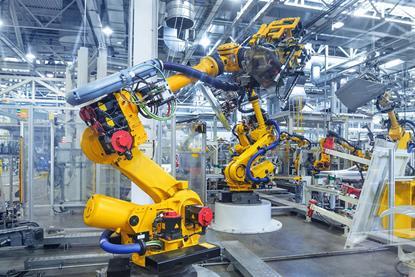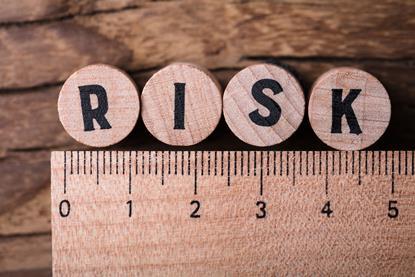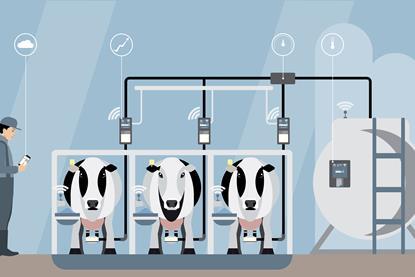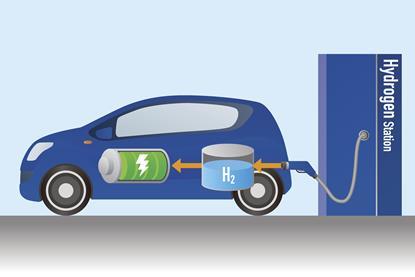Future of business
In today’s technologically advanced and globalised world, industries are being disrupted, enhanced and reinvented – at an exponential pace.
The velocity of change – and its breadth and sheer impact – is being felt in almost all countries, sectors and markets. Its impact extends to entire systems of production, supply chains, distribution, and in areas of management and governance. Crises such as coronavirus and climate change are further drivers of disruption, with implications for traditional business models and global trade.
In The Future of Business series, we look at the scale of change in the industries that are driving real innovation and shaping the future of business, and consider the impact from a risk and insurance perspective.
Future of business
In today’s technologically advanced and globalised world, industries are being disrupted, enhanced and reinvented – at an exponential pace.
The velocity of change – and its breadth and sheer impact – is being felt in almost all countries, sectors and markets. Its impact extends to entire systems of production, supply chains, distribution, and in areas of management and governance. Crises such as coronavirus and climate change are further drivers of disruption, with implications for traditional business models and global trade.
In The Future of Business series, we look at the scale of change in the industries that are driving real innovation and shaping the future of business, and consider the impact from a risk and insurance perspective.
Future of Sustainability
Taken by storm - how medium-sized enterprises can use parametrics to tackle nat cat risks
Medium-sized enterprises (MSEs) play a vital role in our economy. However, these companies face unique challenges when it comes to risk management, particularly in dealing with natural catastrophes such as storms, flooding, or earthquakes.
Expert view: Why data is the lynchpin of climate resilience and reporting
Nina Arquint, CEO EMEA at Swiss Re Corporate Solutions, explores why data could be both an obstacle and a gamechanger for risk managers dealing with climate-related risk
Taking action after another year of extremes
Climate has had a dramatic impact on business and society in 2022 and it’s time to take meaningful action
Hydrogen: insurance supporting the evolution of a new energy economy
With the hydrogen economy poised for take-off, the insurance industry has a crucial role in supporting its end-to-end growth
Seeing flood through a new lens
Flood is the most frequently-occurring natural hazard - so should it still be considered a secondary peril?
Why data is mission critical to climate adaptation
Identifying future climate hotspots empowers risk managers to act now, explains Neil Aellen
Future of Supply Chains
How data analytics and insights can help risk managers take control of their risks and keep the lights on
Too many organisations are operating in the dark, unable to clearly see the exposures they face. Adrien Norulak, head of risk analytics, at Swiss Re Corporate Solutions explores how better data collection, analysis and communication can help companies better manage their mitigation and insurance solutions.
Six cyber resilience lessons for risk managers
Major cyber incidents wipe $225 billion from share prices on average, and supply chain risks are growing. Here’s how risk managers can prepare
What risk managers need to know about tensions in the Strait of Hormuz
The Strait of Hormuz is a vital conduit for transporting crude oil to the rest of the world and a huge, connected risk in global supply chains. Here’s why risk managers should take note of recent tensions
Predictive analytics in an era of cascading risks
How effective data integration makes sense of complexity and takes risk management into a new era
Promoting risk engineering as part of a healthy risk culture
Nat cats cannot be avoided, but risk engineering plays an important role in reducing their site-specific impact
The future of supply chain risk management
The COVID-crisis has prompted a period of introspection as organisations question how to best structure their supply chains and manage their risk
Future of renewable energy
Renewables: A transforming landscape
New technologies are revamping the renewable energy industry, enabling businesses to scale up production and achieve economies of scale. But new options, and even the better-established energies, still have some maturing to do
Running for cover: Insuring renewable projects
As tech innovation continues in the renewable energy space and projects scale ever bigger, conventional insurance options are unable to keep up and insurers are now wondering – what’s next?
Delay in start-up: Renewables need more
When embarking on a large renewable energy project, delay in start-up insurance is crucial – and obligatory. But can standard DSU offerings give renewable start-ups what they require, or are more tailored options needed?
Cloud cover: Finding alternatives
As the renewable energy sector is seeing its risk profile change dramatically, there is increased demand for ways to cover against arguably its greatest foe – unpredictable weather
Expert view: The colour of our future
Renewable energy is booming as green goals are set, and insurers must get creative to offer bespoke coverage for this unique market. But could you commit to going 100% renewable? Swiss Re Corporate Solutions is doing just that.
Future of International Programmes
How risk managers can use international programs to mitigate geopolitical risks
In a world characterised by instability and global conflicts, risk managers need insurance partners to provide solutions that bring simplicity, not more complexity. Swiss Re Corporate Solutions’ Will Porter explains how international programs do just that.
How risk and insurance managers can take control through engineering and international programmes
When international programmes and risk engineering go hand in hand, risk and insurance managers can truly take control of their exposures, say Philip Brandl and Reto Collenberg.
Living and breathing International Programs
Why Swiss Re Corporate Solutions’ International Program team is determined to grow the business carefully, despite an uptick in demand
A joined-up approach to international insurance programs
Why it pays to understand which part/s of your international program will best respond to a loss
International programs: certainty from the get-go
How ONE Form is delivering contract certainty upon inception, while improving consistency, claims and transparency
Marrying captives with international programmes
In the more challenging market, corporate insurance buyers should look to better align captive solutions with international programmes
Future of Commercial Insurance
Why risk managers are turning to parametrics to solve operational challenges
As nat cats grow more severe, insurance gaps are widening - but parametric solutions might hold the key to resilience, says Dianna Nelson, a senior structurer at Swiss Re Corporate Solutions
The new frontier of claims management for international risk
Inside Swiss Re Corporate Solutions’ innovative new approach to claims management and how it can help businesses to keep operations moving smoothly
Corralling captive complexity to better manage risks
As large corporates explore their options for managing retained risks, Swiss Re’s Yann Krattiger explains the value that both captives and traditional (re)insurance solutions bring.
Getting more from your captive
As captives expand and become more complex, they are seeking tailored reinsurance solutions
Captivating propositions
Why more companies are turning to captives to reduce the cost of risk and to fill gaps in their coverage
2022: The year parametrics got creative
With use cases encompassing natural perils, BI and property damage, parametric insurance is no longer a niche play
Future of construction
A new dawn for the construction industry
As the world’s population continue to grow, demand for enhanced and new infrastructure has never been greater. This poses many challenges and intensifies the risks of project delays and cost overruns. But the tech revolution is bringing fresh new opportunities, albeit slowly
Printing grand designs
Highly cost-effective, energy-efficient, fast – 3D printing could be the future of homebuilding. But is the technology too new for insurers?
Cyber protection? Still under construction
Contractors and construction sites are becoming more digitised – leaving them exposed to cyber risks. But why would a hacker target a construction contractor?
Can construction truly go green?
After a sustained push to improve the energy efficiency of homes and offices, the focus has now shifted to the construction companies that build them – and they are not performing well
Expert view: A trusted partnership pays claims quicker
Construction claims can be highly intricate and, on occasion, contentious. In such situations, being able to build trust between key stakeholders within the claims process is vital if you are to achieve successful outcomes, says Jonathan Sargent, head of wholesale property & casualty claims, EMEA, Swiss Re Corporate Solutions
Future of manufacturing
Engineering the fourth industrial revolution
The digital transformation to mechanised production is increasingly taking humans out of the equation. But effective risk prevention demands in-person site visits and in-depth dialogue
The changing face of product recall
As both products and supply chains become more complex, is it surprising that recalls between manufacturers and their suppliers are more common?
Do digital supply chains really bring 100% transparency?
Digital supply chains may promise much sought-after transparency, but they could bring more unknowns as they raise questions about data security and compliance
Pushing the boundaries of traditional cover
In the bid to mitigate the intangible manufacturing supply chain risks, Konrad Meisterhans and Thomas Keist explain how innovative approaches such as parametric solutions can complement traditional products
Future of food and drink
Digitising your dinner
With growing awareness of what can go wrong with their food before it reaches their plate, consumers are demanding more. Tracking technology and sensors could provide the answer
Future of food
Demand for fresh, fast, diverse food options is boosting innovation, but also unseen risks throughout the supply chain. In response comes a new age of insurance
Can science solve starvation?
The colossal imbalance between global hunger and food waste must be addressed. But opinions vary on the controversial measures that could feed the world
Intangible risks that break the chain
The way we get food across the globe is growing more complex, bringing unseen vulnerabilities to the supply chain, writes Swiss Re Corporate Solutions’ food and agriculture expert Oleksandr Artiushyn
Future of transportation
Case study: how Network Rail reduced safety-critical errors and near-miss incidents
Working with EY, Network Rail created an ambitious digital transformation strategy that has improved railway safety and created sustainable, long-term benefits.
Fast track to rail innovation
Advancements in train travel are notoriously slow. So it is unexpected that railways could be the root of the first significant innovation in mass passenger transit in more than a century
Automating the high seas
The world’s first fully automated vessel is expected to set off on its first unmanned voyage by 2022 and that promises to be a good thing for the environment. But the innovation comes from an unlikely corner of the marine industry
Taxis: prosperity and pain
Ride-sharing apps like Uber have been both good and bad for taxi drivers. But the introduction of autonomous vehicles is likely to signal a bleak future for all professional drivers – and challenges for insurers
One-way ticket to a green future
Climate change concerns are fuelling a change in direction as air travel industry explores environmentally friendlier alternatives. The risks of such innovation are high, but the greatest risk of all is standing still
Future of automative
How risk managers can tackle the evolving automotive risks in their organisations
Kiran Boosam, global insurance industry leader, Capgemini, explores how mobility risk is changing and the tactics that risk managers can deploy to manage emerging threats
Mobility ecosystems: Driving change
Self-driving cars are speeding from the future into our present. But what effect will such tech have on the way we view transport, and crucially liability on the road? Insurers cannot afford to hit cruise control and wait to find out
Electric cars: Powering change
The market for petroleum alternatives like electric and hydrogen is accelerating but this developing tech brings new risks to the road. Risks that offer new opportunities to insurers
Production lines: Supplying change
The sheer numbers and complexity in car manufacturing supply chains make them exceptionally vulnerable. It takes a proactive approach to prevent production lines grinding to a halt
Insuring auto: It takes a partnership
When it comes to complexity of the supply chain, the car industry is in a league of its own. While Insurers can still do more to mitigate weak spots, the industry faces a rising protection gap, says Swiss Re Corporate Solutions’ Philip Brandl
























































